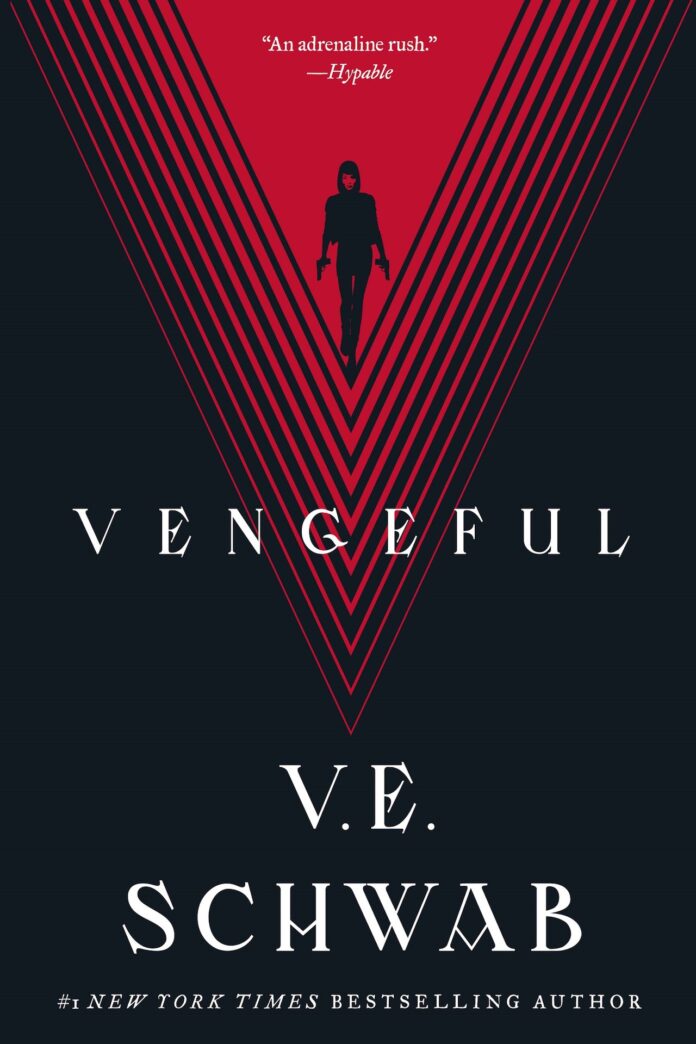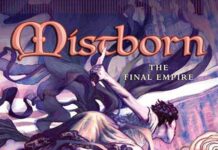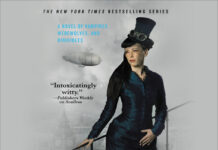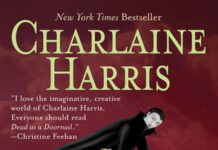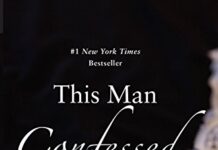In the shadowy depths of Victoria schwab’s “Vengeful,” the line between justice and revenge blurs, inviting readers into a labyrinth of ambition and moral ambiguity.As the sequel to her critically acclaimed “Vicious,” this novel revisits a world where extraordinary abilities come with extraordinary consequences. Schwab deftly spins a tale that questions the essence of power, compelling readers to ponder the motivations that drive individuals to reclaim or destroy. With a canvas rich in complex characters and intricate relationships, “Vengeful” serves as both a continuation of a gripping narrative and a standalone exploration of the darker facets of human desire. In this review,we delve into the thematic depths and character arcs that make Schwab’s work resonate,examining how she navigates the treacherous waters of vengeance in a universe where extraordinary becomes the new normal.
Unraveling Themes of Ambition and Morality Within Vengeful’s Complex narrative

At the heart of Victoria Schwab’s ‘Vengeful’ lies an intricate interplay between ambition and morality, challenging readers to grapple with the darker shades of human aspiration. Characters like Victor Vale and Eli Ever approach their desires with an almost obsessive fervor, which raises questions about the consequences of pursuing power without ethical boundaries. The narrative compels us to consider how ambition morphs into a thirst for revenge,igniting a cycle of destruction that is both thrilling and unsettling.As Victor strives to outpace Eli, the novel invites readers to dissect the ethical dilemmas posed by their abilities and choices, leading us to ponder:
- What lengths are we willing to go to fulfill our ambitions?
- Can the pursuit of power ever be justified?
- How do our moral compasses shift in the face of gruesome power struggles?
Furthermore, Schwab skillfully illustrates the blurred lines between hero and villain, illustrating how moral ambiguity can lead to tragic outcomes. Characters find themselves at crossroads where the choice to seek revenge rather than redemption shapes their fates. Rather than painting a world in clear-cut black and white, ‘Vengeful’ embraces the complexities of its characters’ motivations, prompting an inquiry into whether true justice exists in a realm scattered with gray.In this context, elements like the following become central to our understanding:
Best-Selling Books in This Category
| Character | Ambition | Morality |
|---|---|---|
| Victor Vale | Revenge against Eli | Challenging ethical boundaries |
| Eli Ever | Maintaining superiority | Justifying his actions for control |
The Duality of Power: Analyzing Protagonists and Their Conflicting Motivations
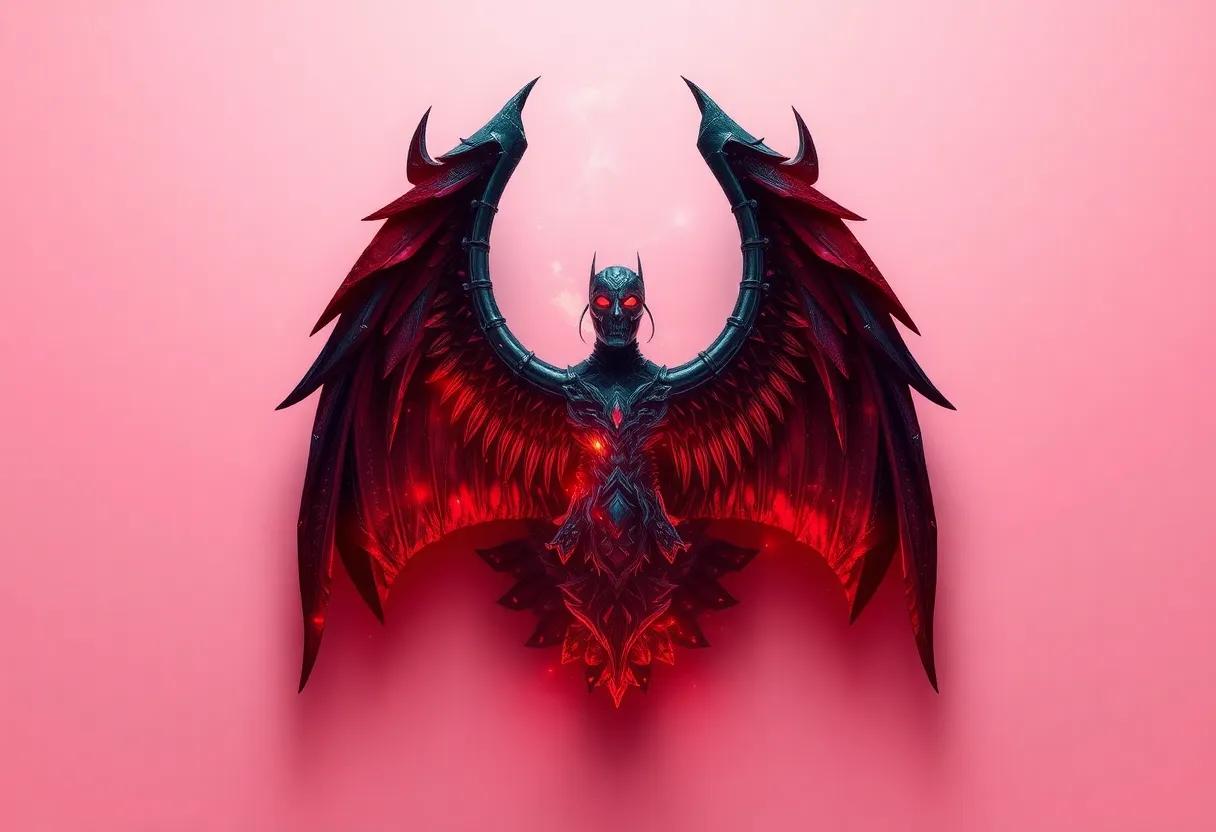
Victoria Schwab masterfully delves into the intricate relationship between power and personal vendetta in Vengeful. The protagonists epitomize the struggle for dominance, each shaped by their individual pasts and ambitions. While Victor Vale seeks revenge against those who marginalized him, his counterpart, Eli Ever, represents an unwavering belief in moral superiority. The conflict between them is not merely a fight for physical supremacy; it embodies the profound ethical dilemmas that accompany unchecked power and the consequences of wielding it for retribution. In this landscape, motivations are rarely black and white, often teetering precariously between heroism and villainy.
Throughout the narrative, Schwab invites readers to ponder the impact of choice on identity and morality. As the characters grapple with their abilities and the extent to which they will go to achieve their goals, themes of betrayal, loyalty, and self-discovery rise to the forefront. The duality of their motivations can be summarized as follows:
| Character | Motivation | Conflict |
|---|---|---|
| Victor Vale | Revenge | Struggles with morality |
| Eli Ever | Control. | Desire to “purify” the world |
ultimately, Vengeful serves as a platform to explore how the pursuit of power can warp intentions and reshape relationships. As Victor and Eli navigate their intricate connection, readers are left to consider whether their thirst for vengeance will lead to their redemption or destruction. Schwab’s narrative invites a profound reflection on how the thirst for power,when coupled with conflicting motivations,can create a cycle of chaos and complexity worthy of exploration.
The Role of Revenge in Relationships: A Deep Dive into Character Dynamics

The intricate web of relationships within Victoria Schwab’s ‘Vengeful’ provides a engaging exploration of how revenge serves as both a catalyst and a barrier in character dynamics. Throughout the narrative, characters such as Victor Vale and Eli Ever emerge as embodiments of vengeance, with their interactions showcasing revenge not just as a personal motivator but also as a mechanism for power dynamics.This relationship oscillates between alliance and conflict, compelling readers to reflect on how revenge can lead to unexpected bonds or devastating fractures. The pursuit of satisfaction through revenge often blinds these characters to the ripple effects of their choices, demonstrating the dual-edged sword of seeking retribution.
Moreover, the novel cleverly illustrates how revenge intertwines with vulnerability and desire, frequently enough exposing deeper wounds that characters try to mask with their quests for power. For instance, one can observe how the desires for dominance and recognition fuel the characters’ motivations, complicating their relationships further. Key themes emerge in the process, including:
- Obsession: A consuming need that drives decision-making.
- Isolation: Consequences of actions leading to estrangement from others.
- Redemption: The quest for forgiveness often intertwined with vengeance.
A deeper analysis of these character arcs reveals a compelling narrative that invites readers to question the morality of revenge. The nuanced portrayal of how such desires warp interpersonal connections is encapsulated in the following table, which highlights the relationship dynamics at play:
| character | Motivation for Revenge | Impact on Relationships |
|---|---|---|
| victor Vale | Personal betrayal and loss | Intensifies rivalry with Eli, strains ties with allies |
| eli Ever | Validation of superiority | Creates distance from potential allies, amplifies paranoia |
| Charlotte Tills | Survival and control | Bridges gaps while testing loyalties, seeks power balance |
Schwab’s Signature world-Building: Immersing Readers in a Riveting Universe

In ”Vengeful,” Victoria Schwab masterfully cultivates a world where morality is as fluid as the powers possessed by her characters. The intricate layering of their abilities not only enhances the plot but also fosters a relationship between the reader and the richly crafted universe.Themes of power and revenge stand at the forefront, creating a tense atmosphere filled with complex dilemmas. Schwab’s meticulous attention to detail invites readers to explore a setting where the extraordinary becomes an everyday occurrence, cleverly juxtaposed with the mundane struggles of her characters. this duality enhances the emotional stakes, making the world feel achingly real.
The author’s skill in world-building allows for a seamless blend of genres, crafting a narrative that feels grounded yet otherworldly. From the shadowy streets of a city filled with powerful beings to the more intimate, character-driven moments that shine a spotlight on personal motivations, every detail contributes to a coherent tapestry. Key elements include:
- vivid descriptions that bring the scenery to life
- multi-dimensional characters with conflicting ambitions
- Intertwined backstories that deepen the plot
Through these elements, Schwab not only immerses readers in a riveting universe but also encourages them to ponder profound questions about justice and the nature of power. The paradoxes that emerge within this crafted world serve as a mirror, reflecting our own societal struggles and moral complexities.
Unpacking the Psychological Layers: Motivations and Consequences Explored

The exploration of power and revenge in Victoria Schwab’s Vengeful invites readers to delve into the intricate web of human motivations.At the heart of the narrative lies the conflict between the protagonist and antagonist, each driven by a powerful need for vindication and supremacy. Characters such as Victor Vale and Eli Ever are not merely seeking vengeance; they are grappling with identity, morality, and the consequences of their choices. this battle transcends mere acts of retribution, propelling them into a struggle for ultimate control over their fates and the world around them.The expectations of heroism and villainy are turned on their head, revealing the fine line that separates justice from revenge.
The psychological repercussions of these motivations manifest vividly throughout the story, affecting not only the characters but also those who surround them. The following themes emerge as critical elements of their journey:
- Isolation: The pursuit of power often leads to alienation, where relationships crumble under the weight of ambition.
- Obsession: A relentless fixation on revenge can consume one’s life, blurring the line between righteousness and self-destruction.
- Transformation: Characters evolve, shedding their former selves, frequently enough at the cost of their humanity as they embrace darker impulses.
To further illustrate the interplay of motivations and their consequences, the table below summarizes key character arcs in vengeful:
| Character | Motivation | Result |
|---|---|---|
| Victor Vale | Retribution | merciless transformation into a morally ambiguous figure |
| Eli Ever | Vindication | Descent into madness, fueled by a quest for divine proof |
| Charlotte Tills | Survival | Disconnection from her former self, leading to a crisis of conscience |
Gritty Realism meets Supernatural Elements: A Unique Blend in Vengeful

In “Vengeful,” Victoria Schwab masterfully weaves a tapestry where the gritty realities of life collide with the tantalizing allure of the supernatural. The characters are not merely vessels for revenge but are deeply human, tormented by their pasts and driven by their desires. The world they inhabit is one where moral ambiguity reigns, painting their struggles with shades of gray that feel eerily familiar. Schwab delves into the psychological impact of vengeance, illustrating how power can corrupt even the noblest intentions. Through her vivid prose, readers are invited to explore the emotional scars that dictate the characters’ choices, creating a rich backdrop for the thrilling supernatural elements that unfold.
The introduction of extraordinary abilities amplifies the stakes, as ordinary individuals grapple with the extraordinary. These gifts carry a weight that transforms conflict from mere physical confrontations to an exploration of existential dilemmas. The tension between power and responsibility raises poignant questions about the nature of strength and its consequences. As the narrative unfolds,readers are treated to a series of confrontations that feel both grand and intensely personal. To emphasize this duality, consider the following table that encapsulates key themes:
| Theme | Gritty Realism | Supernatural Elements |
|---|---|---|
| Conflict | Inner turmoil and personal vendettas | Extraordinary abilities and their impact |
| Character Motivation | Desire for justice and healing | Ambition for power and revenge |
| Consequences | Emotional scars and moral dilemmas | Chaos and transformation of reality |
Crafting a Tapestry of Perspectives: Schwab’s Diverse Character Ensemble

In ‘Vengeful,’ Victoria Schwab masterfully weaves a rich tapestry of characters, each with their own intriguing motivations and backstories. this diverse ensemble creates a multifaceted exploration of power dynamics and the thirst for revenge. The characters—be they hero,anti-hero,or villain—are not merely archetypes but are complex individuals driven by a mix of desires,fears,and moral ambiguities. Their distinct perspectives allow readers to engage with the narrative on multiple levels, fostering a deeper understanding of the story’s themes. The contrasting natures of characters like Victor Vale and Eli Ever, alongside the introduction of fresh faces like Charlotte Tills, serve to illuminate the unpredictable consequences of their abilities and ambitions.
Schwab’s ability to craft characters that resonate with readers is exemplified through their personal conflicts and relationships. Each character’s journey reflects a unique lens on revenge and power, underscoring how one’s choices can lead to unexpected outcomes. Here’s a brief glimpse into some of the key players:
| Character | Motivation | Conflict |
|---|---|---|
| Victor Vale | Redemption | Struggles with morality |
| Eli Ever | Power | His moral superiority |
| Charlotte Tills | Belonging | Fear of inadequacy |
This intricate interplay among the cast enriches the narrative, driving home the notion that revenge is not a straight path but rather a winding road fraught with moral dilemmas and ethical gray areas. Schwab’s prowess not only in developing individual story arcs but also in harmonizing them within the larger tapestry makes ‘Vengeful’ a compelling study of ambition, consequence, and the very human need for understanding and connection.
The Pacing of Tension: Keeping Readers on the Edge in a Gripping Story
In Victoria Schwab’s Vengeful, the art of pacing is a masterclass in tension, artfully crafted to keep readers riveted. Schwab deftly balances moments of high stakes with quieter interludes, allowing anticipation to simmer just beneath the surface. The alternating perspectives of Victor Vale and Eli Ever, along with vibrant secondary characters, serve to elevate the stakes as secrets unfurl and ambitions collide. Each chapter feels like a careful placement on a tightrope, which makes the eventual falls all the more shocking. Key elements that enhance the pacing include:
- Cliffhangers: Each chapter often ends with a tantalizing question or twist that propels the reader forward.
- Character Advancement: Schwab uses slow, gradual revelations to deepen character motivations, engaging readers’ emotions.
- Dual Timelines: Fluctuating between past and present creates a layering effect of narrative tension, compelling readers to piece together the larger puzzle.
Moreover, the interplay of power and revenge is woven seamlessly into the pacing, adding another dimension to the story. The characters’ conflicting desires continually heighten the suspense, making readers question not only their allegiances but also the moral implications of their actions. Consider the following elements:
| Character | Desire | Tension Point |
|---|---|---|
| Victor Vale | Control | Fighting his darker impulses while seeking justice. |
| Eli Ever | Revenge | his quest for vengeance fuels his recklessness. |
| Charlotte Tills | Belonging | Torn between loyalty to Victor and her own ambitions. |
This interplay of character motivations not only serves to heighten the stakes but also immerses the reader in a rich emotional landscape, transforming the journey into a thrilling exploration of vengeance and the human condition. The deft pacing in Vengeful exemplifies how tension can be manipulated, drawing readers deeper into the intricate web of power dynamics that thrive in Schwab’s world.
Echoes of Humanity: Exploring Relationships Beyond Vengeance and conflict

In Victoria Schwab’s Vengeful, the delicate dance between power and vengeance unfolds in a richly woven narrative that challenges the boundaries of morality and identity. The characters, shaped by their past traumas and ambitions, grapple with the energy that fuels their actions. Through complex character arcs, we see how the pursuit of revenge becomes both a motivating force and a consuming fire. Each encounter unfolds layers of emotion, depicting the struggle not only against external foes but also the inner demons that push them toward darkness.
Central to the exploration are themes of connection and disconnection that emerge within a world driven by personal vendettas. The relationships formed in a landscape marked by conflict reveal the fragility of humanity’s ties. Readers are invited to reflect on how vengeance can isolate individuals, even as it bonds them in shared suffering. Below is a brief overview of key character dynamics that shift throughout the narrative:
| Character | Relationships | Motivations |
|---|---|---|
| Victor vale | Allies and Rivals | Power, Revenge |
| Elijah Hale | Conflict with Victor | Control, connection |
| Charlotte Tills | Struggles for Autonomy | Freedom, Identity |
As these interactions unfold, readers witness a powerful commentary on the impact of vengeance on both individual lives and broader societal structures. Schwab’s narrative asks us to consider whether true strength lies in the ability to forgive and rebuild or in the relentless pursuit of retribution. Through vivid storytelling and moral complexity, Vengeful ultimately resonates as a call to seek connections that transcend pain, reminding us that humanity’s echoes are often found in the relationships we forge, not just in the conflicts we endure.
Unforgettable Quotables: Memorable Lines that Resonate and Challenge

in the realm of literary exploration, few narratives evoke the complexity of power dynamics and the thirst for revenge quite like victoria Schwab’s ‘Vengeful.’ Within its pages, readers unearthed profound insights through unforgettable lines that stick with you long after you’ve turned the final page. These quotable moments delve into the intricate dance between ambition and morality, often leaving us questioning the ethical boundaries we impose on ourselves and others.Key phrases from the text highlight this ongoing struggle:
- “Power can be a double-edged sword.” This reminds us that while power can elevate, it can also devastate.
- “Revenge is a cycle with no end.” highlighting the futility and destructiveness of seeking vengeance.
- “To be extraordinary, one must embrace the darkness.” A call to not shy away from one’s complexities and shadows.
Each of these lines serves as a mirror, reflecting our own desires and fears regarding justice and retribution.They resonate not only within the plot but also challenge our perceptions, pushing us to confront the inherent danger of ambition unchecked. Schwab’s skillful weaving of these memorable quotes throughout her narrative enhances the thematic depth of her work, inviting readers to consider their own relationships with power and the consequences inherent in the pursuit of it. The exploration of these concepts in ’Vengeful’ serves as a haunting reminder that the pursuit of might and retribution can irrevocably alter one’s path.
Illustrating Power dynamics: Artful Prose and Vivid Imagery in Vengeful
Victoria Schwab masterfully captures the intricacies of power dynamics in Vengeful, weaving a narrative that is both artful and immersive. Through her nuanced characterizations and sharp dialog, she illustrates the delicate interplay between strength and vulnerability. The interactions between Victor Vale and Eli Ever, each embodying different facets of ambition and revenge, serve as a captivating study of how power can corrupt and consume. Schwab uses vivid imagery to illustrate their battles, transforming conflicts into visual feasts that are as striking as they are thought-provoking. The city itself becomes a character in its own right, reflecting the chaos and complexity of the lives intertwined within it.
Amidst the electric tension, Schwab cultivates an atmosphere thick with suspense and intrigue. The narrative evokes a myriad of emotions, prompting readers to navigate the blurred lines between heroism and villainy. Each encounter is underscored by a sense of urgency, drawing one deeper into the world of betrayal and manipulation. Through her rich prose, the author not only depicts physical confrontations but also the internal struggles of her characters, inviting readers to ponder questions of morality and justice. The intricate layers of each character’s quest for power unravel through symbolic moments,further enhancing the novel’s exploration of vengeance as both a motivator and a destructive force.
Narrative Arc and Structure: A Study of Schwab’s Masterful Storytelling

in Victoria Schwab’s “Vengeful,” the narrative arc unfolds with a deftness that mirrors the intricate powers of its characters. The story navigates a labyrinth of motives, weaving together themes of ambition, retribution, and the blurry line between heroism and villainy. Each character is brilliantly crafted, leading to a dynamic interplay that enhances the tension throughout.The three-act structure serves as the backbone of the novel, facilitating a gripping rise in stakes that keeps the reader entranced. Schwab skillfully utilizes devices such as flashbacks and interwoven timelines, enriching her storytelling and adding layers of depth.
At the heart of the plot lies a carefully choreographed dance between protagonists and antagonists, with each chapter revealing new dimensions of ambition and the consequences that follow. As power shifts hands, Schwab employs strategic pacing to build suspense. the motifs of power and revenge manifest themselves in various forms, propelling characters towards their fates in unexpected ways. Through rich dialogue and vivid descriptions, the author crafts an environment where every action carries weight, leading to a climax that is not only thrilling but also profoundly thought-provoking. The complexities of each character’s journey resonate deeply, prompting readers to reflect on the nature of vengeance and the cost it incurs.
Victoria Schwab’s Literary legacy: Defining a New Era in Fantasy Writing
Schwab’s influence on the fantasy genre is evident in her ability to meld complex character development with intricate world-building. In ‘Vengeful’, she dives deep into the dark recesses of power and revenge, compelling readers to explore the blurred lines between heroism and villainy.The novel showcases her unique storytelling prowess, where the moral ambiguity of her characters leads to a rich tapestry that challenges conventional fantasy tropes. Schwab’s characters are not just mere pawns in a fantastical narrative; they are fully realized beings with desires, fears, and flaws, creating an emotional resonance that lingers beyond the page.
Through her relatable yet haunting prose, Schwab invites readers to question the very nature of justice and the lengths one will go to secure power. Vengeful serves as both a continuation and culmination of her themes, as it illustrates the intricacies of vengeance and the burdens of ascension. Readers are captivated by:
- Ambiguous Morality: Schwab blurs the lines between right and wrong, forcing characters—and readers—to confront uncomfortable truths.
- Compelling Antagonists: The villains possess depth, turning the conventional narrative of good and evil on its head.
- Rich World-Building: Each setting serves a purpose, enhancing the story’s emotional stakes.
Wrapping Up
As we close the chapter on our exploration of Victoria Schwab’s “Vengeful,” it becomes clear that the intricate dance of power and revenge weaves a complex tapestry of human emotion and ambition. Schwab crafts her characters with an artistry that invites readers to grapple with their motivations and moral compasses, leaving us questioning the very nature of justice.
In this meticulously crafted narrative, we are reminded that revenge is a double-edged sword, one that can both cut through the shroud of injustice and ensnare the seeker in a web of their own making. As we turn away from the pages of ”Vengeful,” we carry with us not just the vivid imagery of its world but also the lingering echoes of its themes—inviting introspection and discussion long after the final word has been read.
Schwab’s novel may not offer clear answers,but it undoubtedly ignites a dialogue that resonates with the deepest recesses of our shared humanity. With a deft hand, she compels us to consider not only who wields power but also who suffers in its pursuit. As we venture into our own narratives, perhaps we might reflect on the costs of revenge and the fragile balance of power within our own lives. The story might potentially be over, but the questions—and their implications—remain ever pertinent.

